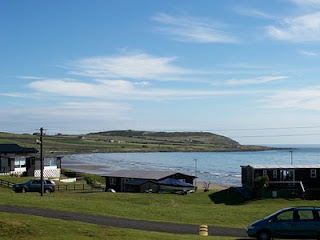
Scottish embryologist, John Beard proposed as long ago as 1906 that pancreatic enzymes were the body's main bulwark against cancer. Having published "Enzyme Therapy of Cancer" in 1911,his work attracted a degree of medical attention until his death in 1923. These ideas then died away only to be occasionally awakened from their slumbers by complementary therapists looking for alternative and less intrusive treatments than those offered by the Medical mainstream.
In the 1960s Beard's work resurfaced in Texas, when a dentist named William Kelley started treating cancer sufferers with proteolytic enzymes. Kelley's work was highly controversial as it flew directly in the face of orthodox cancer medical care procedures that relied heavily on radiation treatment and chemotherapy. Thus he was castigated by the media and hassled by the authorities.
New York physician and ex-Cornell Medical School graduate Dr. Nicholas Gonzalez met the Texas dentist in 1981. Instead of confronting a demon as portrayed by the press, he met a self-effacing man who like Royal Rife before him only wanted his work to be evaluated by the Academic World of Medicine. Gonzalez thought this to be a reasonable request and set out to do something about it. Although a mere medical student at the time he elicited the help of the then Sloan Kettering President, Robert Good. Good supported Gonzalez in his quest and he was allowed to conduct a thorough case review of Kelley's work as part of his own medical studies.
Nicholas Gonzalez reviewed 10,000 patient records; He interviewed and evaluated 500 of Kelley's patients who had all been diagnosed with advanced cancers. He summarized his findings in a monograph completed in 1986. His overall conclusion was that Kelley's treatment procedure resulted in an above average survival rate, with many of the sufferers enjoying an apparent regression of their disease.
In a separate chapter he took 22 pancreatic cancer patients; this form of cancer has a very low survival rate. Statistically speaking there is a 0% likelihood of surviving 5 years.
Twelve of these patients visited only once and then were persuaded to quit treatment due to the negative reactions of friends, family and physicians who branded Kelley as a charlatan. These he took as his control group. They demonstrated an average survival rate of 67 days. Another 7 members of the control only partially followed the Kelley treatment. They displayed a survival ratio of approximately 7 months. However, and much more interestingly those who followed the treatment to the letter lived for an average of a stunning 9 years! This example serves as good demonstration of the folly of following the well-intentioned yet prejudiced advice of other people!
Nicholas Gonzalez is continuing work using these protocols dating back at least 100 years and hopes to be able to raise the interest and or money to have a full-scale scientific review conducted of the effectiveness of the enzyme treatment of cancer. The price of enzyme therapy comes out at between $5,000 and $6,000 per year, which in itself is a fraction of the cost of conventional medical care.
No comments:
Post a Comment